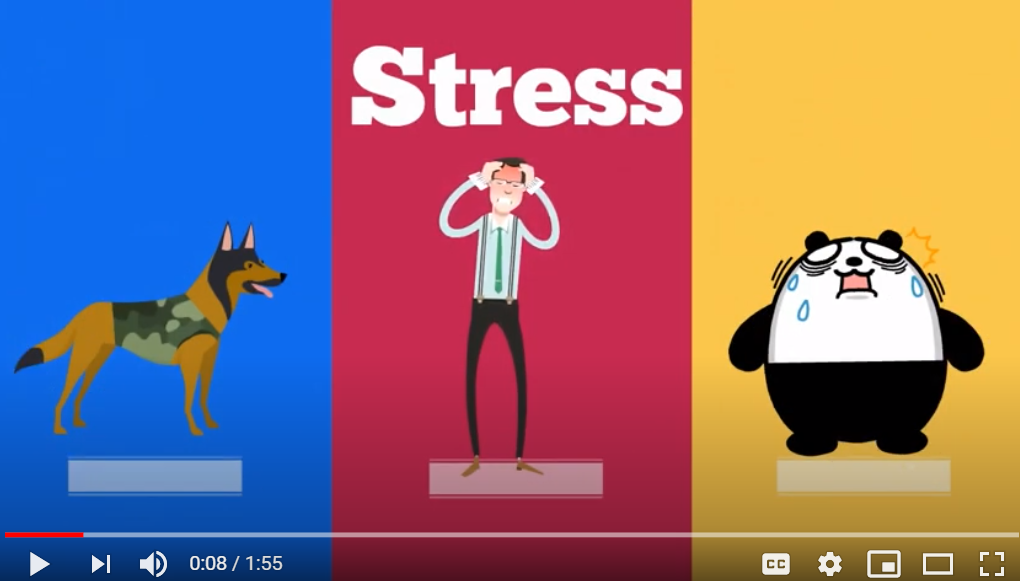What happens to my body when I experience stress?

What happens to my body when I experience stress?
People react differently to stress. Some common symptoms of stress include sleeping problems, sweating or a change in appetite.
Symptoms like these are triggered by a rush of stress hormones in your body which, when released, allow you to deal with pressures or threats. This is known as the 'fight or flight' response.
Hormones called adrenaline and noradrenaline raise your blood pressure, increase your heart rate and increase the rate at which you perspire. This prepares your body for an emergency response. These hormones can also reduce blood flow to your skin and reduce your stomach activity. Cortisol, another stress hormone, releases fat and sugar into your system to boost your energy.
As a result, you may experience headaches, muscle tension, pain, nausea, indigestion and dizziness. You may also breathe more quickly, have palpitations or suffer from various aches and pains. In the long-term, you may be putting yourself at risk from heart attacks and stroke.
All these changes are your body’s way of making it easier for you to fight or run away and once the pressure or threat has passed, your stress hormone levels will usually return to normal. However, if you’re constantly under stress, these hormones remain in your body, leading to the symptoms of stress. If you’re stuck in a busy office or on an overcrowded train, you can’t fight or run away, so you can’t use up the chemicals your own body makes to protect you. Over time, the build-up of these chemicals and the changes they produce can be damaging for your health.